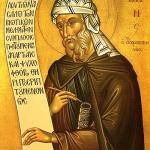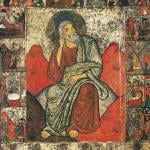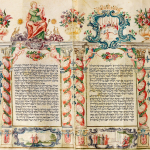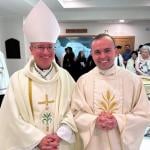Krakow, Poland, Dec 16, 2016 / 04:02 am (CNA/EWTN News).- (Editor's note: This article includes explicit descriptions of violence. Reader discretion is advised.) Christina Shabo was born under a tree in a refugee camp after her family fled bombing in their Iraqi hometown in 1991. Several of her relatives have been killed by the Islamic State – one whose body was chopped up and delivered to the family in pieces – and some continue to fight for their lives after suffering vicious attacks. However, rather than harboring an understandable hatred toward those persecuting her family and her people, she has decided instead to pray for ISIS and their conversion. “I asked Jesus for the grace to forgive every time I would pray the Divine Mercy Chaplet. But instead of praying 'For the sake of his sorrowful Passion, have mercy on us and on the whole world,' I pray 'have mercy on ISIS and on the whole world.'” This is what Shabo, 25, said she has decided to pray as a means of helping learn how to forgive the terrorists who are slaughtering her people. She gave her testimony to fellow youth this summer as part of a catechesis session for WYD in Krakow, detailing the painful events that led her family to flee Iraq in the first place, as well as the horrors that have taken place after the rise of ISIS in 2014. In an interview with CNA after her testimony, Shabo explained that the decision for her to speak during WYD was last minute, and she was asked to incorporate forgiveness into her talk. However, upon hearing this request, Shabo's first thought was “I don't forgive ISIS.” “I’ve struggled with it, because I haven’t gotten there yet. It’s a daily reminder,” she said, explaining that she still harbors anger and resentment, so the path to forgiveness has been a difficult, everyday task. Admittedly, after hearing Shabo's story, it’s easy to understand where these feelings come from. “I was a miracle baby. I really, truly was,” she said, explaining that her mother was 8 months pregnant when her family made the difficult decision to leave Iraq in 1991 due to the threat of bombing in their hometown during the Gulf War. They were among the thousands of others who decided to make the dangerous trek through the steep mountains in order to pass into Turkey, with bombs falling nearby. She noted how many people died along the way, including her 8-year-old cousin Rita. Shabo said that when Rita died, her uncle didn’t “have it in his heart” to bury her in the mountains, so he carried her body the rest of the way into Turkey. Once the family made it across the border, they buried Rita under a tree in the camp. Then, “it gets even crazier,” Shabo said, explaining that just a month later her mother’s water broke near the same tree, “and my mom delivered me right then and there.” While Shabo and her family gained religious asylum in Detroit two years later, many of their relatives are still living in Iraq where the violence hasn’t ended, but instead has reached a fever pitch with the spread of the Islamic State. The world of violence Shabo was born into “was reincarnated” June 20, 2014, when ISIS militants stormed Mosul, either slaughtering Christians and moderate Muslims who don’t share their extreme ideologies, forcing them to pay a high tax, or flee the city. Shabo said that during the attack, one of her relatives was “violently murdered…He was chopped up in a dozen pieces” and delivered to his family in a bag. “Imagine someone that you love being delivered to you in a bag in pieces. It’s insane. So when I hear stories like that, how could I not be angry?” she said. One of her cousins was also killed the series of bombings in Baghdad which claimed the lives of some 400 people July alone. Her cousin’s mother is still in the hospital “fighting for her life.” However, as hard as it was to think about forgiveness, Shabo said that throughout her life whenever she has felt anguish, anger, frustration or numbness, “I go to adoration. I take it to Him.” It was through adoration that the idea to pray for ISIS came to her mind, she said, explaining that as she was praying one day she kept repeating the Chaplet of Divine Mercy, “it just kind of came to me: pray for them. Use that as a way to kind of think about them, but think about them in a more positive way.” Though she didn’t mean it at first, Shabo said the idiom “fake it till you make it” eventually worked, and that slowly she was able to open her heart letting go of her anger. “Anger just makes you angry and bitter, and nothing good comes out of it. But when you take that and you turn it into mercy and forgiveness, and you see how fruitful that can be, even for yourself, aside from anyone else, you can’t stop doing it.” Shabo noted how her father is a deacon at their Chaldean parish in Detroit, and that as their family marched through the mountains to Turkey, it was he who kept their faith strong. “As they march they prayed. That’s all they had. They left with nothing,” she said, explaining that her father kept reminding the others that “it’s okay. Even despite all of this, we have him with us. And we need to hold on tight to that.” This, she said, “is how they got through that, and that’s how we continue to get through it.” However, it hasn’t always been easy. Shabo said while she has been “blessed” to have her family, to live in Detroit and go to school like “a normal person,” she also feels a great sense of guilt. “None of my other family survived. There’s a sense of guilt that I survived and they didn’t,” she said, explaining that she also feels a deep connection with the Christians in Iraq, and desperately wants to go back, but is unable to given the precariousness of the current situation. When asked why she feels ashamed of not being able to return, Shabo said it’s because the stories of all the refugees currently fleeing Iraq and Syria “are the same as mine.” She pointed to the September 2015 photo of Aylan Al-Kurdi, three-years-old, which captured the reality of many refugees. The photo, which gripped the heart and conscience of those all over the world, showed the tiny body of Al-Kurdi washed up on the shore of Turkey after drowning along with his mother and older brother in a failed attempt to reach the nearby Greek island of Kos from Bodrum, their most direct passage into the European Union. “When I saw that image, I absolutely broke down…I did not see that child, I saw myself,” she said, explaining that after everything she’s gone through, she “vividly” relates to what these families are experiencing. “There’s thousands of Iraqi Christians in the northern Erbil that are living in the same situation I was. It’s hard not to feel that connection, to feel that that’s me,” she said, adding that there’s also the aspect “that I survived, but that child died.” Shabo said she wants to take “all the goodness” she has received through God and her faith “and to give it back to the people” in difficulty, as well as those still living in Iraq. In fact, she’s already jumped in, and has started working in crisis intervention and volunteers on a help line for suicide. She also collaborates with an organization called the “Shlama Foundation,” which was established after a peace rally she helped organize in 2014 when ISIS attacked Mosul. It was through the rally that close friends of hers created the foundation, which aims to find out the concrete needs of those in Iraq and raise money to fund specific projects on the ground. She explained that for a long time she was “ashamed” of her story, and didn’t want to tell people the conditions of her birth, but it was her parents who insisted “this is who you are, and you’re going to keep it alive.” “It’s so hard to do that in the secular world of America or a lot of these other countries,” Shabo said, noting that in Iraq “it was easy” since many come from similar situations, but that many she knows in the U.S., including her nieces and nephews, are struggling to hold on to their heritage. Even keeping the Chaldean language of Aramaic – an ancient language dating back to the time of Christ – is a challenge. Aramaic “was the language that Jesus Christ spoke,” she said, explaining that the prospect of a Middle East without Christians is “a tragedy, because that’s where Jesus is from.” “That can’t happen. I don’t want to see that happen. I don’t want to live in that world,” she said, cautioning that “if we don’t do something about it, then unfortunately that will be our reality.” While she wants Christianity in Iraq and the Middle East to live on, Shabo admitted that the uncertainty of the situation is hard for many to deal with, and that even she and her family have a hard time accepting the decision of their relatives who have decided to stay. She said that after the Baghdad bombing that claimed her cousin’s life, her family called “and were yelling at them: ‘Why did you stay? Why didn’t you go to Erbil? Why are you still there? Get out! Your son just died and you’re in a hospital.’” “I don’t know that I’ll ever be able to go back into the same world that it was,” she said, but noted that despite Iraq’s bloody history of violence and persecution “our people have stood their ground.” “That gives me hope, and I feel like if we hold on to that hope and hold on to that faith, that there will be a world where I can return to and it will still continue.” Shabo explained that events like World Youth Day can help serve as catalysts for those who want to do something to help, thanks to the global representation of youth as well as the connections people are able to make. “As powerless as you feel as an individual, when you connect with other people who have that same passion that have that same desire, God works wonders,” she said, explaining that through World Youth Day she was able to meet people she had been corresponding with in Iraq, but had never met in person. She was also able to meet the group of 300 Chaldean youth who traveled from Iraq to Krakow for the July 26-31 event, one of whom was from her hometown. When Shabo asked the group for something from Iraq, they gave her a scarf with the Iraq flag on it. In return, when the group asked her for something from the U.S., Shebo gave them her necklace and bracelets. “It’s such a blessing” to be at World Youth Day, she said, explaining that a cousin whom she had never met before was also there, and she was trying to find a time to meet him. “It’s good to know that other people are listening and connecting with the story,” she said. “There’s no words to describe that, when you feel that, because that comes from God. We are truly one Body in Christ. It’s amazing I can’t put it into words.” This article was originally published on CNA Aug. 7, 2016. Read more
















